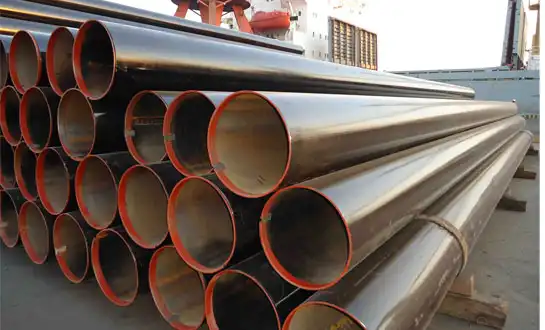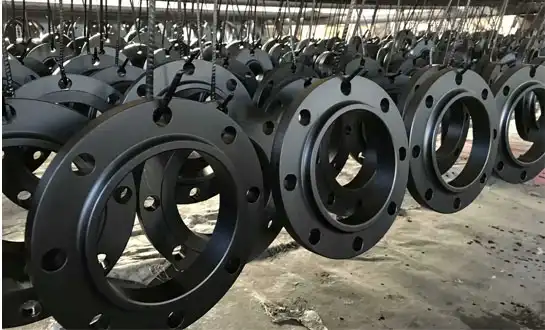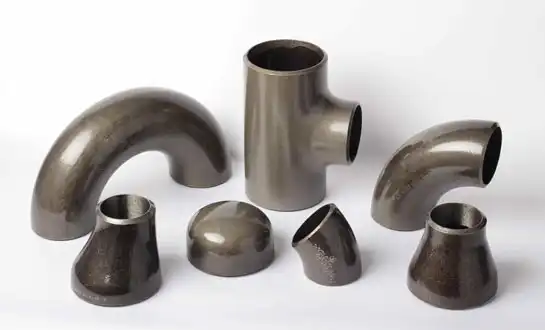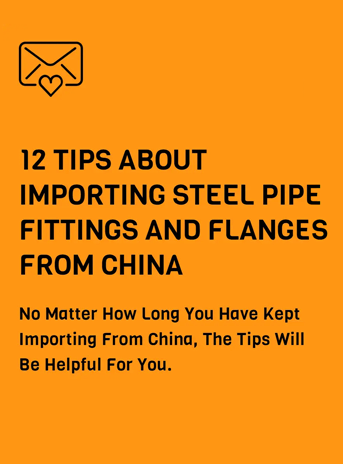How Global Certification Affects Pipe Fitting Procurement?
Global certifications completely change how pipe fittings are bought by setting quality standards that are known around the world, making it easier to trade across borders, making sure that regulations are followed, and giving buyers more faith in the abilities of suppliers. In today's globally connected business world, quality standards and certifications like ISO 9001:2015, GOST-R, SGS approval, and API standards are understood by everyone, regardless of where they are from or what language they speak. These credentials have a big impact on purchasing choices because they show that industrial pipe fittings meet strict quality standards, material requirements, and performance standards that are necessary for critical infrastructure applications. Certifications help buyers deal with the risks that come with buying from unknown suppliers, make sure that controls are in place during the manufacturing process, and ensure that goods meet the rules of the destination market. Certified providers have an edge over other businesses because they are seen as more trustworthy, can reach more customers, and don't have to go through as many inspections. Organizations can make smart sourcing choices that combine quality assurance, regulatory compliance, and business competitiveness when they know how different certification schemes affect the procurement process.
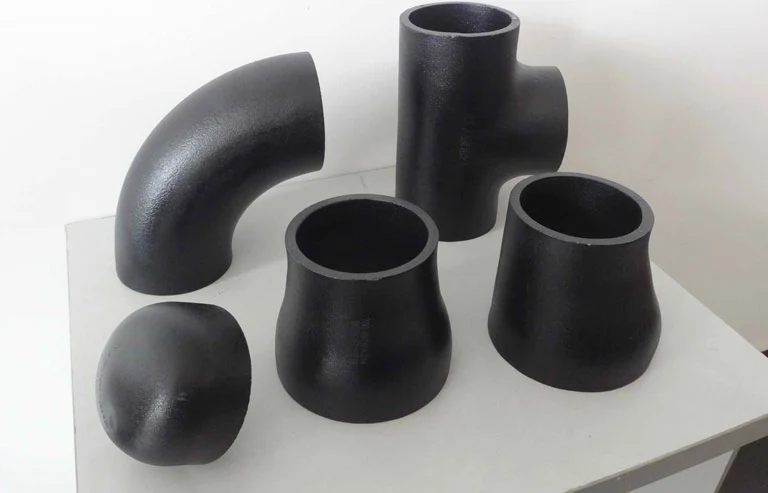
Understanding Major Global Certification Standards
ISO 9001:2015 Quality Management System Certification
The most well-known quality management system standard in the world is ISO 9001:2015. It sets strict rules for controlling processes, making improvements all the time, and making sure customers are happy. These rules have a direct effect on the quality and accuracy of making industrial pipe fittings. The certification shows that providers have put in place organized ways to handle production processes, keep an eye on material inputs, check product features, and take corrective actions for problems that don't meet standards. Procurement professionals like ISO 9001:2015 certification because it lets them know that sellers follow written rules for important manufacturing tasks like checking materials for quality, measuring them, testing them under pressure, and keeping track of them throughout production. Certified certification bodies do regular surveillance audits to make sure that suppliers are still following the rules. This gives buyers faith that certified suppliers will keep the quality system working well over time. Industrial pipe fittings made with ISO 9001:2015 systems tend to have more regular size accuracy, material properties, and surface finish features than goods that aren't certified.
Regional and Industry-Specific Certifications
Beyond ISO standards, regional certifications such as GOST-R for Russian markets and industry-specific credentials, including API specifications, establish additional compliance frameworks that govern industrial pipe fittings procurement in particular geographic regions or application sectors. GOST-R certification confirms that products meet Russian Federation technical regulations and quality standards, facilitating market entry and customs clearance for suppliers serving Eurasian markets. API specifications developed by the American Petroleum Institute establish detailed technical requirements for pipe fittings used in petroleum exploration, production, and transportation applications. SGS validation services provided by the independent testing organization offer third-party verification of product conformance to specified standards, material composition analysis, dimensional inspection, and mechanical property testing. These validation reports provide objective evidence supporting procurement decisions, particularly when buyers lack in-house inspection capabilities. Understanding which certifications apply to specific markets, applications, and regulatory environments enables procurement professionals to specify appropriate credentials and verify supplier qualifications effectively.
Material Testing and Product Certification Programs
Material certifications and product-specific testing programs verify that industrial pipe fittings conform to specified chemical compositions, mechanical properties, and performance characteristics essential for safe, reliable operation in demanding service conditions. Mill test certificates document the chemical analysis and mechanical testing results for raw materials used in fitting production, providing traceability from finished products back to source steel production. Third-party material verification services conduct independent chemical analysis and mechanical testing to confirm mill certificate accuracy. Non-destructive testing certifications, including liquid penetrant examination, magnetic particle inspection, and ultrasonic examination, detect surface and subsurface defects that could compromise industrial pipe fittings during service. Hydrostatic testing certificates verify that individual fittings withstand specified test pressures without leakage or deformation, providing confidence in pressure containment capability. Documentation systems tracking manufacturing certifications, inspection results, and service history enable informed decisions regarding product deployment and quality assurance.
Impact on Procurement Decision-Making and Supplier Selection
Certification as Supplier Qualification Criteria
Global certifications function as essential supplier qualification criteria that streamline procurement processes by providing standardized evaluation benchmarks, replacing time-consuming individual capability assessments. Many organizations maintain approved supplier lists restricting industrial pipe fittings purchases to vendors holding specified certifications, eliminating uncertified sources from consideration regardless of pricing competitiveness. Request for quotation documents typically specify mandatory certifications as minimum qualification requirements, with suppliers unable to demonstrate required credentials automatically excluded from bid evaluation. Certification requirements may vary based on fitting application criticality, with safety-critical components demanding more comprehensive credentials than general industrial applications. Industrial pipe fittings suppliers maintaining current certifications benefit from expedited approval processes, reduced audit frequency, and preferential treatment in competitive bidding situations compared to uncertified competitors.
Risk Mitigation Through Certification Verification
Certifications mitigate procurement risks associated with quality defects, regulatory non-compliance, supply chain disruptions, and reputational damage by providing objective evidence of supplier capabilities and systematic process controls. Quality risks diminish when purchasing industrial pipe fittings from ISO 9001:2015 certified suppliers who have demonstrated the ability to consistently meet product specifications through controlled manufacturing processes. Regulatory compliance risks decrease when suppliers hold destination market certifications confirming products meet applicable technical regulations, reducing exposure to customs rejections or installation prohibitions. Financial risks associated with defective products, including replacement costs and production downtime, decline when dealing with certified suppliers whose quality systems emphasize defect prevention. Risk-based procurement strategies appropriately match certification requirements to application criticality, specifying comprehensive credentials for high-consequence applications while accepting basic certifications for lower-risk industrial pipe fittings applications.
Cost Implications of Certification Requirements
While certified industrial pipe fittings may command premium pricing reflecting suppliers' certification costs and enhanced quality systems, total cost analysis often reveals net savings through reduced inspection requirements, lower defect rates, and improved reliability. Buyers benefit from reduced incoming inspection requirements when purchasing from certified sources, trusting certification oversight to verify quality. Defect-related costs, including returns, replacements, and production disruptions, decrease significantly when sourcing industrial pipe fittings from suppliers whose certified quality systems emphasize prevention. Installation efficiency improves with precisely manufactured certified products exhibiting consistent dimensions, reducing field labor costs. Warranty claims and long-term maintenance expenses decline when certified manufacturing processes produce fittings with enhanced durability. Market access benefits enable certified suppliers to serve multiple geographic regions through a single manufacturing facility, achieving economies of scale that moderate pricing despite certification expenses.
Practical Application in Global Procurement Operations
Certification Requirements in Technical Specifications
Technical specifications for industrial pipe fittings projects should explicitly identify required certifications, applicable standards, documentation requirements, and verification procedures to ensure suppliers understand compliance expectations. Material specifications reference standards organizations, including ASTM, ASME, or EN, and identify specific grades, heat treatment conditions, and mechanical property requirements. Quality system certifications should be explicitly listed with specific scheme versions and validity period expectations. Documentation requirements detail the certificates, test reports, and traceability information that suppliers must provide with industrial pipe fittings shipments. Project specifications may recognize equivalent certifications from different scheme providers, establishing acceptance criteria for alternative credentials meeting similar objectives.
Verification and Strategic Application
Effective procurement processes establish systematic procedures for verifying certification validity, reviewing supporting documentation, and maintaining compliance records throughout industrial pipe fittings acquisition. Pre-purchase verification confirms that suppliers' certifications remain current through checking certificate expiration dates and consulting certification body databases. Organizations can strategically leverage certification requirements to optimize procurement outcomes by balancing quality assurance, market access, and cost competitiveness. Standardizing on certified suppliers across global operations creates volume leverage while maintaining consistent quality. Long-term partnerships with certified suppliers enable collaborative improvement initiatives where buyer feedback influences supplier system enhancements, benefiting entire customer bases.
Conclusion
Global certifications profoundly influence industrial pipe fittings supplier procurement by establishing quality benchmarks, facilitating international trade, and building buyer confidence in supplier capabilities. Organizations that strategically leverage certification requirements optimize quality assurance while maintaining competitive sourcing options. HEBEI RAYOUNG PIPELINE TECHNOLOGY CO., LTD. demonstrates an unwavering commitment to excellence through ISO 9001:2015, GOST-R, and SGS certifications, ensuring our industrial pipe fittings consistently meet the highest international standards.
FAQ
1. Why are global certifications important when procuring industrial pipe fittings?
Global certifications provide objective evidence that suppliers maintain quality management systems and manufacturing process controls, ensuring consistent conformance to specifications. These credentials facilitate international trade through recognized quality language, reduce procurement risks through third-party verification, and streamline customs clearance. Certifications enable buyers to efficiently evaluate suppliers without conducting comprehensive individual capability assessments.
2. What certifications should I require for industrial pipe fittings procurement?
Essential certifications include ISO 9001:2015 for quality management systems, relevant regional credentials such as GOST-R for specific markets, and industry standards like API specifications for petroleum applications. Material certifications documenting chemical composition and mechanical properties provide traceability assurance. Required certifications depend on application criticality, destination market regulations, and specific project requirements.
3. Do certified industrial pipe fittings cost more than uncertified alternatives?
Certified products may command modest premiums reflecting suppliers' certification costs, but total cost analysis often reveals net savings. Benefits include reduced incoming inspection requirements, lower defect rates, decreased warranty claims, and improved installation efficiency. Transaction cost reductions through streamlined purchasing and simplified customs clearance further offset any premium pricing.
4. How can I verify that supplier certifications are legitimate and current?
Verify certification validity by checking certificate expiration dates, consulting certification body databases listing authorized holders, and confirming issuing organization accreditation status. Contact certification bodies directly to authenticate certificates using serial numbers. Reputable suppliers willingly provide certification details and facilitate verification. Fraudulent certificates often exhibit inconsistencies in formatting or security features.
HEBEI RAYOUNG PIPELINE: Your Certified Industrial Pipe Fittings Manufacturer
At HEBEI RAYOUNG PIPELINE TECHNOLOGY CO., LTD., we believe that excellent infrastructure starts with dependable materials backed by internationally recognized certifications that validate our unwavering commitment to quality excellence. We make quality industrial pipe fittings, like buttweld steel elbows, reducers, and flanges that meet strict global standards and last a long time. We are one of the top makers of pipes and fittings. As proof of our commitment to quality, growth, and new ideas in every application, we have a long list of certifications that includes ISO 9001:2015, GOST-R compliance, and SGS validation. Our industrial pipe fittings are guaranteed to work well with projects all over the world thanks to these credentials. This makes it easier to get them through customs and get government approval in many different markets. Contact us today at info@hb-steel.com to experience the RAYOUNG difference.
References
1. Dale, B.G., van der Wiele, T., & van Iwaarden, J. (2021). Managing Quality. Sixth Edition. Wiley-Blackwell, Oxford, United Kingdom.
2. Hoyle, D. (2022). ISO 9000 Quality Systems Handbook: Using the Standards as a Framework for Business Improvement. Eighth Edition. Routledge, Abingdon, United Kingdom.
3. International Organization for Standardization. (2023). Quality Management Systems: Requirements (ISO 9001:2015). Fourth Edition. Geneva, Switzerland: ISO Central Secretariat.
4. Karapetrovic, S., & Willborn, W. (2020). Quality Assurance and Quality Control in the Service Industry. International Journal of Quality & Reliability Management, Volume 37, Issue 5, Pages 845-862.
5. Russell, J.P. (2021). The ASQ Auditing Handbook: Principles, Implementation, and Use. Fifth Edition. ASQ Quality Press, Milwaukee, Wisconsin.
6. Summers, D.C.S. (2022). Quality Management: Creating and Sustaining Organizational Effectiveness. Third Edition. Pearson Education, Upper Saddle River, New Jersey.

Need a quote? Want to see samples? Just say hello. We’re friendly. We’re fast. And we’re ready when you are.
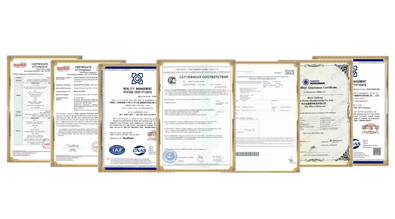
Welcome to RAYOUNG – Strong Pipes, Stronger Promise
